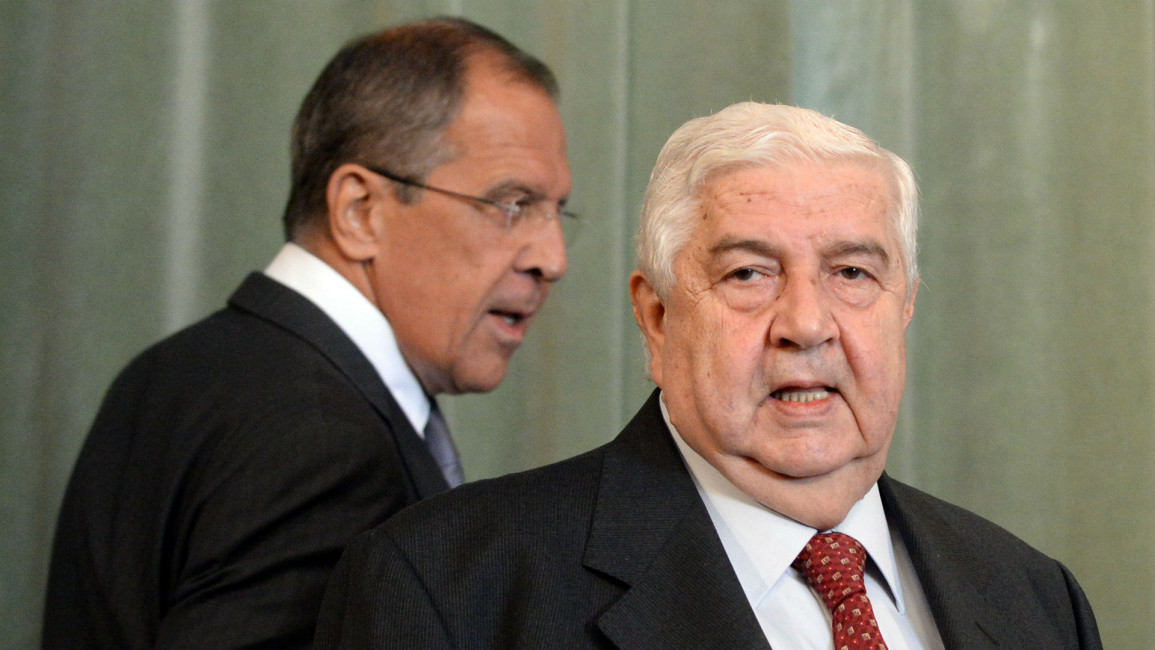US warns Russia over military aid to Syria's Assad
The US on Saturday warned Russia of a confrontation with coalition forces fighting Islamic State in Syria after media reports suggested Moscow was planning to expand its military support for Syrian President Bashar Assad.
In Washington, the State Department issued a statement after Secretary of State John Kerry called Russian Foreign Minister Sergey Lavrov to express concern over reports "suggesting an imminent enhanced Russian military build-up" in Syria.
| Russia has been a strong ally of Assad throughout Syria's civil war. |
The State Department said Kerry told Lavrov that such actions "could further escalate the conflict, lead to greater loss of innocent life, increase refugee flows and risk confrontation" with the anti-Islamic State coalition operating led by the US that is carrying out strikes in Syria.
Russia has been a strong ally of Assad throughout Syria's civil war and has provided diplomatic and military support to help the Syrian regime maintains its power. Moscow also maintains a small naval facility at the Syrian port of Tartous on the Mediterranean Sea.
'Militant arrested'
Syrian pro-government media say a militant suspected to be behind explosions that rocked a southern province, killing a prominent anti-government cleric and stirring unrest, has been arrested.
Syrian state television said Sunday the man known as Wafi Abu Trabi has confessed to elders of the southern Sweida province of plotting the blasts and the subsequent violence against security forces.
Sweida is a predominantly Druze area that largely has stayed out of the civil war raging in Syria since 2011.
An explosion and a car bombing there Friday killed Sheikh Wahid Balous and at least 25 others. Balous was a vocal critic of President Bashar Assad.
The cleric's death sparked angry protests. His supporters have blamed the Syrian government for his death.
| The civil war has killed more than 250,000 people and wounded over 1 million. |
He was also a critic of the Islamic State militants who have taken over a third of the country and are fueling the civil war that has killed more than 250,000 people and wounded more than 1 million.
Balous, who was a strong supporter of rebels trying to topple Assad, died in one of two consecutive car bomb explosions, including one near the National Hospital in Sweida.
The Observatory said the death toll rose Saturday to 37, including six security personnel killed in clashes with protesters.
The city had witnessed large rallies in the days before the explosions against the failure of the government to provide basic services. Activists reported that there was no Internet service for the past few days.
Syria's official news agency and other activist groups put the death toll from the blasts at 26. There was no immediate claim of responsibly for the bombings.
The Syrian government called the blasts "cowardly terrorist acts." A police commander in the city, Mohammed Samra, said Sweida was "calm and stable" and denied any unrest, saying reports of anti-government violence were aimed at undermining security in the area.
Some of Balous' supporters said in a statement they will expel security forces from Sweida province, which until now has largely stayed out of the fighting in Syria's civil war.
City elders appealed for calm, warning against attempts to drag the province toward violence. Another statement from the city's Druze leaders urged supporters to be patient as the cleric's brother, who was seriously wounded in the attack, recovers.
An offshoot of Shia Islam, the Druze made up about 5 percent of Syria's prewar population of 23 million people, and is split between supporters and opponents of Assad.
In Lebanon, which also has a sizeable Druze population, the sect's political leader Walid Jumblatt said Balous's death was a "painful strike" to the community.
"It is time for the honorable citizens (of Sweida) to rise up in the face of the Syrian regime that wants repression and to spread sedition," he told the anti-government Syrian Orient TV.
The National Syrian Coalition opposition group in exile also blamed the Syrian government for the killing of the cleric, known as "the Dignity Sheikh," saying it was part of an attempt to stop the anti-government protests in recent days.
In a statement, coalition member Suheir Attasi said killing Balous only "increased the popular anger in the province."



